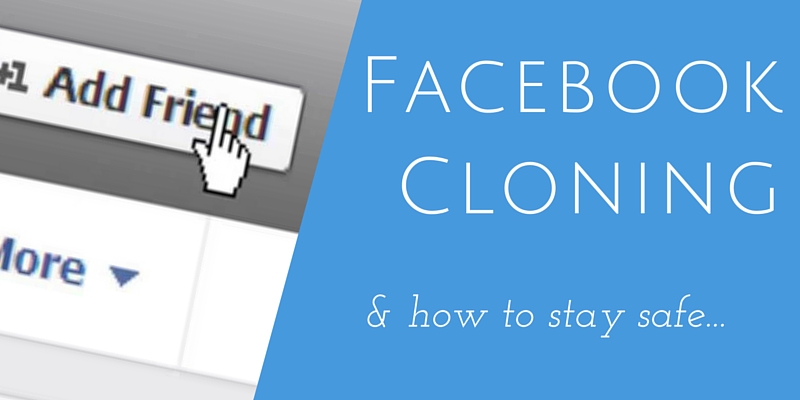
One of the biggest fears about being online for a lot of people is that they will be hacked, or somehow their identity will be stolen. It is very common to receive suspicious emails from various recipients – including bank accounts asking us to verify our account information – and these emails can look very convincing. But it is also possible to steal someone’s social media identity, so how should we handle it if it happens to us?
As a social media specialist and an employee of a digital business, unfortunately even I am not immune to this - as I discovered last week. I didn’t know anything had happened until I started getting messages and phone calls from friends saying that I had requested them to be a friend on Facebook. I was on my mobile and away from my office and my laptop so I was restricted in how I could handle it – but it was clear that there was someone out there pretending to be me. What was disconcerting was the amount of information they had been able to access from my own account. They had my profile picture and my header picture of my children. They had my work information and had also put in a date of birth (10 years out of date, which was what alerted a keen eyed friend of mine!)
If it wasn’t for the quick action of my friends then I may not have been aware of it, and they may have been brought into a scam designed to trick them into potentially revealing private information about themselves. However this was avoided as I asked everyone that messaged me to report the fake account to Facebook and in no time at all it was taken down.
After my own identity theft, I had a friend request from someone I was already friends with and so knew what to do in that situation – I reported the clone to Facebook and it was dealt with.

So why does this happen, and what can we do to prevent it?
After doing some research it seems to be quite rife at the moment. The tactic is known as ‘Facebook cloning’ and is different to being ‘hacked’. Hacking tends to involve stealing private information whereas cloning is an impersonation of everything that is public on your profile. The cloning involves everything that I experienced, in that the scammer can create a profile which is identical to your own – taking the information from your profile that is set to ‘public’, for example your profile and header images.
The scammer then requests friendships from everyone on your friends list in the hope that you will accept - the recipient may not think twice about it as they may think you have accidentally unfriended them, or they may have forgotten that they were already friends. Also, unfortunately there are many Facebook accounts who accept friend requests regardless of whether they know them or not.
The scammer can then send messages to their friends, or explore their ‘friends’ accounts, taking their information and potentially being able to commit identity theft to a number of other people.
For myself however, this wasn’t the case – friends were quick to alert me and therefore the account was taken down. Facebook acted quickly and no harm was done. If it happens to you, whether you are cloned yourself or you get a friend request from someone you are already friends with, then follow the instructions that Facebook advises you to here.
Whilst researching this blog, after googling ‘Facebook hacking’ I was greeted with a number of ways on how to hack a friends account, and there is even a website which prides itself on being a ‘Free Online Facebook Hacker’ – so it is clear that it is a real threat.
However, it is easy to stay safe. Remember to keep as much of your information private and not public, plus always use a secure password. You can change who sees your friends by looking at your account settings - by clicking on your friends list in 'activity log' you can change from 'public' to 'my friends' or 'just me'.
Tips for staying safe
- Keep all of your Facebook settings 'private' and not 'public'
- Know who your friends are - don't accept people that you don't know
- Use a secure password (for more advice take a look at our blog here)
- Be careful what you share - once it is online it is out in the public forum and hard to remove
- Always log out of public computers, and be mindful of who you lend your mobile to
- Take immediate action should you become aware of any suspicious activity on your account
By staying vigilant on all of your online channels you will be able to keep the scammers at bay. For more advice on how to stay safe on Facebook please click here.
If you need any further information please do not hesitate to get in touch, helen@cosmic.org.uk.
